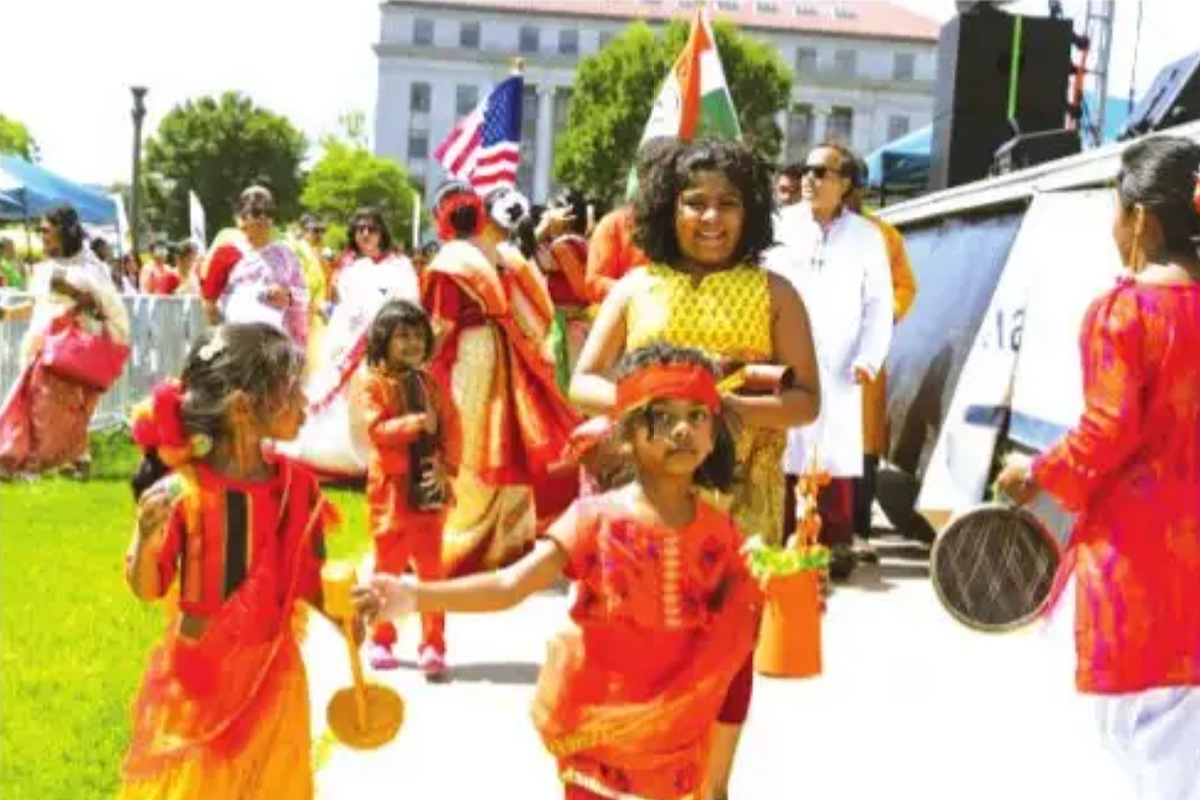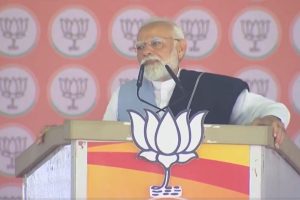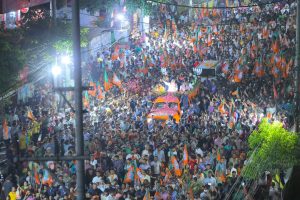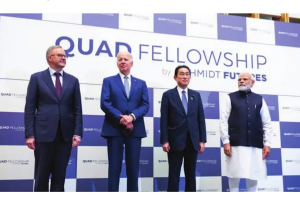Despite all the outward signs of my Americanization, deep down inside I am really a Bengali. I was born in Kolkata, raised in a suburb of Kolkata and went to college and university in Kolkata. I am thankful to my heritage for many of my personality traits including a keen interest in literature and performing arts, a philosophical/spiritual mindset, a strong emotional side, an analytical mind and interest in spending time with my friends in idle chit-chat (“adda”) while sipping tea. The early part of my life evolved in a traditional Bengali way involving family bonding, religious festivities and time for schoolwork.
I am proud of the contributions of Bengalis in areas of science, literature, religion, politics, the struggle for freedom, economics, music/arts, sports, entertainment and many others. There is nothing more mouth-watering to me than hilsa fish cooked in a mustard curry and a dessert of Rasgoollas. When I migrated to the USA, my eyes opened to the lives and interests of people from all over the world and various deficiencies in our Bengali culture. We all know these weaknesses but are very stubborn; not only unwilling to change our practices but critical of other Bengalis who do want to change or hold opposing non-traditional views.
The purpose of my essay is not to paint a negative image of Bengalis in America but to emphasize that it is not at all difficult to improve ourselves. Bengalis can then perhaps become the best ethnic group in the entire world. My first observation is that we are by and large envious of others. Our favorite pastime is “Poro ninda, poro charcha” (discussing and criticizing others). If a person achieves an unusual degree of success, his Bengali friends will get busy finding some flaw in his activities or some questionable reason behind his success. Improving upon this point is easy: always make positive, encouraging and supporting comments.
We are racist people and perhaps even do not realize that. We call Indians from other states “non-Bengalis”. It is like white folk describing others as “non-whites” or “coloured”. We consider Bollywood movies culturally inferior and discourage our teenage children from seeing them and even listening to Hindi songs. Most of us are not well-versed in Hindi. We must open ourselves to the culture, food, language and lifestyle of not only people from other parts of India but people from all over the world.
We are puritanical in our behaviour patterns. The husband and wife would not sit next to each other, the wife would walk a few feet behind and there would be no display of affection; no hugging, kissing, not even holding hands. We avoid any conversation with a sexual undertone. We do not like other couples if they get a little too cozy publicly. Bengali husbands can easily take the initiative to make married lives more romantic. There are plenty of books and therapies available on the internet.
While Bengali women look very attractive in gorgeous sarees, they never wear any revealing outfit; the most skin you would see is when they wear blouses exposing their navel. Even in a swimming pool, I have never seen a Bengali woman wearing a bikini. Overcoming this just requires some initial courage and support from family members. We are into hero-worshiping. We are obsessed with Rabindranath Tagore and have incorporated Tagore in every imaginable aspect of our lives. Tagore songs dominate cultural functions. Framed photos of Tagore and books written by him decorate our homes. Our cultural development is measured by how easily one can recite a Tagore’s poem or a dialogue from one of his novels. We celebrate his birthday as a major event.
The same fervour extends to Swami Vivekananda and even to other famous Bengalis whose works we do not even understand. The names of Satyen Bose and Amartya Sen come to mind. Speaking of Vivekananda, even though we recite “jibe prem kare jei jon“, we are not into pets. We feel uncomfortable in the presence of pets and do not know how to handle them. Pick up a cat or a puppy in your arms and you might innstantly bond with it. Politically, we are largely liberal democrats probably because we think that the Republican Party is the party of old white people who hate foreigners.
The real reason is that most of us do not understand how money works in a capitalist society. We suffer from a feeling of entitlement because we think that, since we are engaged in professions which service the public, it is the government’s job to fund our activities. I have not met many Bengalis eager to start their own business. We like ideas of safety nets like welfare regardless of how much money we have. We are very argumentative and love to (loudly) debate just for the sake of debate.
Just mention a controversial topic such as “Trump” or “nudity” in any Bengali gathering and watch what happens. We must patiently listen to opposing views. We avoid hands-on or labourintensive work. You will seldom find us working in hourly jobs whether it is at a store or manufacturing plant or construction. We do not go to the gym regularly. We are also not into outdoor sporting activities except perhaps golf. Taking a long walk every day may be a good start. We eat too much rice, too many sweets and too many deep-fried items in our food. Coupled with lack of exercise, this results in diabetes and premature heart problems but that does not seem to deter us. We are serious people and seldom laugh out loud. Our sense of humor has developed around stories by Shivram Chakravarty and Narayan Ganguly and comedy by Bhanu Banerjee in his Bangal accent. We are not very appreciative of stand-up comedy in this country, be it from Johnny Carson of yesteryear or Chris Rock of the present era. We must learn to relax and enjoy ourselves. We feel self-conscious and awkward when it is time to hit the dance floor. Even if we do not want to dance, we must encourage our children and grandkids because this is a social norm for meeting with the opposite sex. We are frugal people.
We know if there is a big sale going on in some store or the best plane fare to visit India. We give minimum tips. We are more likely to be found shopping at Wal-Mart and Target as opposed to Nordstrom and Macy’s. We love bargaining. We do not donate much to charity. Our favourite car is a Honda Accord.
This trait probably resulted from financial insecurity in a foreign land. We can certainly afford to spend more money on everything instead of saving for a rainy day. My main lesson is that, if I want to be popular in the Bengali circle I must conform to certain unwritten rules. These rules probably define who we are. However, I intend to go against these norms in my comments and writing to show my Bengali friends and readers other ways of thinking.
These alternate paths are not necessarily better but might help us in building a broader perspective. We can then truly appreciate which ones of our traits resulting from a Bengali tradition are superior to others and areas where we can improve ourselves.
(The writer, a physicist who worked in industry and academia, is a Bengali settled in America.)











